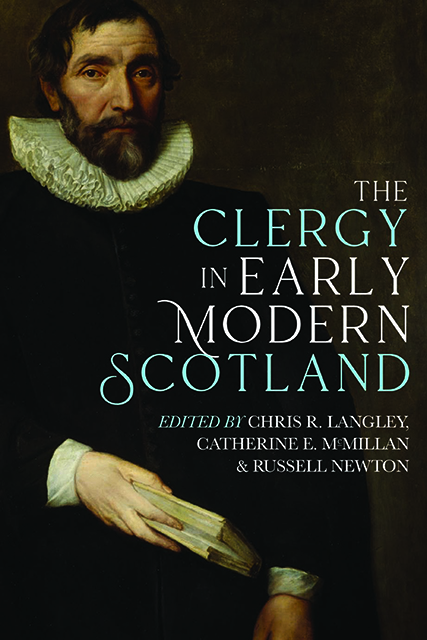10 - Pastoral Cares, Covenant, and Courtship in John Dury’s Personal Correspondence, 1641–5
Published online by Cambridge University Press: 14 January 2023
Summary
The twice-ordained Scottish minister John Dury (c. 1600–80) is best known as an irenic who spent several decades corresponding and conferring with Church leaders across north-west Europe in pursuit of what he termed ‘ecclesiastical peace’: agreement on basic doctrines and an end to factionalism between Protestants. He has been studied as a theologian, educationalist, librarian, political operator, and close associate of fellow reformers Jan Amos Comenius and Samuel Hartlib. Dury has not, however, been considered as a lover – and rarely as a pastor and royal chaplain. Yet his personal correspondence testifies to the ups and downs of the minister’s pastoral and romantic careers no less than of his overarching mission. Examining letters initially kept on file by Hartlib and now preserved in the University of Sheffield’s Special Collections and the British Library, this chapter brings to light overlooked aspects of Dury’s pastoral experience and approach during the time of his courtship to his covenanted friend and eventual wife, Dorothy Moore (née King, c. 1612–64). These aspects include his interactions, as chaplain, with Princess Mary Stuart and her two successive governesses, largely overlooked in previous scholarship.
The most recent full-length study of Dury, Pierre-Olivier Léchot’s 2011 monograph, Un christianisme « sans partialité » Irénisme et méthode chez John Dury (v. 1600–1680), is a classic intellectual biography that traces the development of Dury’s multifaceted philosophical and theological thought. This chapter, by contrast, prioritises the human over the abstract. By doing so, it contributes to a discernible trend in Anglophone biographies of early modern Scottish clergy – as exemplified by John Coffey’s study of leading Covenanter Samuel Rutherford (1997) and Jane Dawson’s John Knox (2015) – to give due consideration to the interpersonal dimensions of the lives of Scottish clergymen who were not only theorists but also politically engaged public figures, pastors, husbands, fathers, and friends. This chapter focuses on Dury’s manuscript letters – the most interpersonal of genres – for what they communicate about his lived experience as a minister and a man in love. This case study demonstrates the richness of correspondence as a source for a more holistic, socially grounded religious history – and one that writes the women back in.
- Type
- Chapter
- Information
- The Clergy in Early Modern Scotland , pp. 186 - 206Publisher: Boydell & BrewerPrint publication year: 2021
- 2
- Cited by



